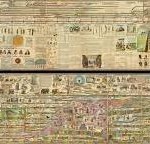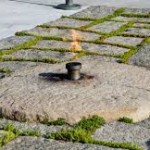Congregation Beth Mordecai
Congregation Beth Mordecai
An inclusive congregation affiliated with the Conservative Movement.
Your Jewish Home for the Soul!
An inclusive congregation affiliated with the Conservative Movement.
Your Jewish Home for the Soul!
April 18, 2014 By bethmordecai no comments.
"Knowing the right amount of love to give can be like the story of Goldilocks and the three bears. Sometimes we give open hearted love and can feel overwhelmed, sometimes we give "tough love" and can feel callous, but when we have the right balance of opening our heart out of love and creating boundaries out of love, then our love can feel just right (ORIGINAL)" For other days of the Omer, please click here
Category : Omer Online Learning Tag : balance beauty chesed chessed counting glory goldilocks and the three bears hesed just right love lovingkindness omer online learning sefirat ha-omer tiferet חסד תפארת
April 17, 2014 By bethmordecai no comments.
"Just as too much water can drown a plant, and too little can parch it, the precise irrigation that an observant gardener provides can nurture strong plants without wasting water. Similarly, Gevurah, careful discernment, can fine-tune the flow of Hesed, aiming it for clarity, shape, and effectiveness. Hesed alone would be like drowning in spiritual chicken soup. Instead, the soup needs to be carefully ladled out, into manageable portions (Counting the Omer: A Kabbalistic Meditation Guide, p.42)" For other days of the Omer, please click here
Category : Omer Online Learning Tag : borders boundaries burn out chesed direction discernment flow gardener gevurah hesed love lovingkindness online learning strength water גבורה חסד
April 16, 2014 By bethmordecai no comments.
Today, Hesed Sheb'Hesed, is like an overflowing fountain of lovingkindness. Like a stream of water slowly dissolves hard rock, the flow of love slowly transforms obstacles into warm sands of acceptance (Counting the Omer: A Kabbalistic Meditation Guide, p.39) // Post by Congregation Beth Mordecai. For other days of the Omer, please click here
Category : Omer Online Learning Tag : chesed Clare Bennett David Bennett Dorothy August flow fountain hesed homes Ila Miller omer online learning Patrick Miller pure Sandra Levine חסד
April 11, 2014 By bethmordecai no comments.
 Triennial I (2014/5774): There Is No Earlier and There Is No Later in Torah
The first words of our Torah portion begin with the words "aharei mot sh'nei b'nei aharon -- after the deaths of Aaron's sons." Yet the demise of Aaron's sons, Nadav and Avihu, happened three Torah portions earlier in Parashat Sh'mini, so why does the Torah have to teach us that our Torah portion occurs after their death! One explanation is that this proves that there is no earlier (past) or later (present) when it comes to the chronology of events as it is written in the Torah. During today's class we will explore this explanation to try to understand it's implications for the meaning of Torah -- should[...]
Triennial I (2014/5774): There Is No Earlier and There Is No Later in Torah
The first words of our Torah portion begin with the words "aharei mot sh'nei b'nei aharon -- after the deaths of Aaron's sons." Yet the demise of Aaron's sons, Nadav and Avihu, happened three Torah portions earlier in Parashat Sh'mini, so why does the Torah have to teach us that our Torah portion occurs after their death! One explanation is that this proves that there is no earlier (past) or later (present) when it comes to the chronology of events as it is written in the Torah. During today's class we will explore this explanation to try to understand it's implications for the meaning of Torah -- should[...]
Category : home Online Learning Online Parashah Class Tag : chronology exegesis future history ibn ezra online learning online parashah class or hachayim or hahayyim past rashi torah
March 21, 2014 By bethmordecai no comments.
2014/5774 (Triennial I): A Strange Fire? In this week's Torah portion, Aaron's sons Nadav and Avihu bring an "eish zarah," a strange fire, to the tabernacle and instead of having their gift accepted, they are personally consumed by a fire from God. What went wrong? What was this strange fire that God not only rejected but caused God to kill them? Can we learn anything from this episode about how we should or should not approach God in our worship? Join the class to find out! Classes from other years... 2013/5773 -- Why Is Pig So Unkosher? Details of Photo The Death of Nadab and Abihu, engraving by[...]
Category : home Online Learning Online Parashah Class Tag : aaron avihu fire nadav online learning online parashah class parashah parsha parshah sh'mini shemini weekly torah portion worship
March 14, 2014 By bethmordecai no comments.
 Parashat Tzav (צו) Triennial I (2014/5774): The Always Burning Flame
Fire is often used as a metaphor for motivation, as in the phrase "to have a burning passion." Also, like motivation, fire is a limited resource that can only burn when it has enough fuel. Yet, our Torah portion today speaks of an "always burning flame" upon the altar that seemingly does not need to be renewed. Is it possible that like this burning flame, our own passion and motivation can be constant WITHOUT the need for refuel? Check out the class to find out!
Parashat Tzav (צו) Triennial I (2014/5774): The Always Burning Flame
Fire is often used as a metaphor for motivation, as in the phrase "to have a burning passion." Also, like motivation, fire is a limited resource that can only burn when it has enough fuel. Yet, our Torah portion today speaks of an "always burning flame" upon the altar that seemingly does not need to be renewed. Is it possible that like this burning flame, our own passion and motivation can be constant WITHOUT the need for refuel? Check out the class to find out!
Category : Online Learning Online Parashah Class Tag : eternal flame fire motivation online learning online parashah class parsha passion tsav tzav weekly torah portion צו
February 28, 2014 By bethmordecai no comments.
 2014/5774 (Triennial I): Keeping Track of What's Important
We make lists of all sorts of things, from home supplies, to daily tasks, to a "bucket" list of what we want to do in life. Yet aren't there times when it feels like writing down or keeping track of all of those lists are just a burden? Wouldn't it be better if sometimes we didn't have to worry about keeping track of things? This week's Torah portion of P'kudei might give us some interesting insight on the spiritual component of keeping track of what's important and how to manage the important tasks of our day.
Photo by Chris Freeland on Flickr -[...]
2014/5774 (Triennial I): Keeping Track of What's Important
We make lists of all sorts of things, from home supplies, to daily tasks, to a "bucket" list of what we want to do in life. Yet aren't there times when it feels like writing down or keeping track of all of those lists are just a burden? Wouldn't it be better if sometimes we didn't have to worry about keeping track of things? This week's Torah portion of P'kudei might give us some interesting insight on the spiritual component of keeping track of what's important and how to manage the important tasks of our day.
Photo by Chris Freeland on Flickr -[...]
Category : Online Learning Online Parashah Class Tag : accounting lists online learning online parashah class p'kudei parsha pekudei
February 14, 2014 By bethmordecai no comments.
 This Week's Online Parashah Class: Parashat Ki Tissa -- From Cannabis To Shabbos: Does Judaism Embrace or Control Our Desires?
2014/5774 (Triennial I) -- From Cannabis To Shabbos: Does Judaism Embrace or Control Our Desires?
Religion is often seen as a "conservative" movement that focuses its efforts on restricting our behaviors. However, is it possible that religion actually helps us embrace our desires rather than trying to make them go away? Should we make use of all there is to offer in this world, or are[...]
This Week's Online Parashah Class: Parashat Ki Tissa -- From Cannabis To Shabbos: Does Judaism Embrace or Control Our Desires?
2014/5774 (Triennial I) -- From Cannabis To Shabbos: Does Judaism Embrace or Control Our Desires?
Religion is often seen as a "conservative" movement that focuses its efforts on restricting our behaviors. However, is it possible that religion actually helps us embrace our desires rather than trying to make them go away? Should we make use of all there is to offer in this world, or are[...]
Category : Online Learning Online Parashah Class Tag : desires incense ki tisa ki tissa marijuana online learning online parashah class parsha shabbat song of songs weekly torah portion yetzer hara yetzer hatov
February 7, 2014 By bethmordecai no comments.
 2014/5774 (Triennial I) -- The Torah's View of Brotherly Love
In the Bible, brothers often don't get along. Cain killed Abel, Jacob stole Esau's birthright, and Joseph's brothers sold him into slavery. But are there more positive examples than these negative portrayals of sibling rivalry? Using wisdom from this week's Torah portion, Parashat T'tzaveh, and some teachings from the midrash, we will take a look at how the Torah does relate a positive example of brotherly love by way of the relationship between Moses and Aaron and what their example can teach us about what it means to have a positive relationship with our siblings.
Photo courtesy of Jim Hammer on[...]
2014/5774 (Triennial I) -- The Torah's View of Brotherly Love
In the Bible, brothers often don't get along. Cain killed Abel, Jacob stole Esau's birthright, and Joseph's brothers sold him into slavery. But are there more positive examples than these negative portrayals of sibling rivalry? Using wisdom from this week's Torah portion, Parashat T'tzaveh, and some teachings from the midrash, we will take a look at how the Torah does relate a positive example of brotherly love by way of the relationship between Moses and Aaron and what their example can teach us about what it means to have a positive relationship with our siblings.
Photo courtesy of Jim Hammer on[...]
Category : Online Learning Online Parashah Class Tag : aaron brotherly love moses online learning online parashah class parsha siblings t'tzaveh tetzaveh weekly torah portion
January 31, 2014 By bethmordecai no comments.
 2014/5774 (Triennial I): The Light of Lamps and The Bread of Tables
In the first third of this week's Torah portion (Exodus 25:1-40), we learn about the building of the ark, the table, and the lamp of the tabernacle (in that order). It makes sense that the ark should have been written first, but why does the table come before the lamp? Is one more important than the other? And is there a lesson to be found in this about human nature and good and evil? Check out this week's Online Parashah Class to find out!
Classes from other years...
Online Learning
Online Parashah Class
Tag : ark good and evil lamps online learning online parashah class parsha shewbread t'rumah tabernacle teruma terumah יצר הטוב יצר הרע
2014/5774 (Triennial I): The Light of Lamps and The Bread of Tables
In the first third of this week's Torah portion (Exodus 25:1-40), we learn about the building of the ark, the table, and the lamp of the tabernacle (in that order). It makes sense that the ark should have been written first, but why does the table come before the lamp? Is one more important than the other? And is there a lesson to be found in this about human nature and good and evil? Check out this week's Online Parashah Class to find out!
Classes from other years...
Online Learning
Online Parashah Class
Tag : ark good and evil lamps online learning online parashah class parsha shewbread t'rumah tabernacle teruma terumah יצר הטוב יצר הרע